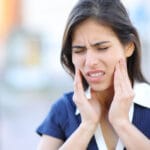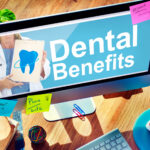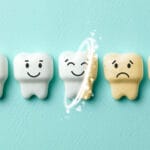Most of us have experienced the discomfort of a dry mouth at some point – in the morning when we wake up, for example. High stress and increased physical activity may also reduce the amount of saliva in the mouth. When the mouth is unusually or persistently dry, however, there is cause for concern. This ailment is known by the medical term xerostomia.
Xerostomia is a condition in which the salivary glands do not function properly. A lack of saliva in the mouth has a domino effect: tasting, chewing and swallowing become more difficult, which in turn may compromise nutrition. Additionally, saliva contains proteins and minerals that protect and revitalize tooth enamel while neutralizing the acids in oral bacteria. When the amount of saliva is reduced, the mouth becomes more susceptible to tooth decay and gum disease. Xerostomia can also lead to bad breath.
What Causes Dry Mouth?
What causes xerostomia? There are several possibilities, including:
- Medication — dry mouth is a side effect of many medications, including over-the-counter antihistamines, diuretics, chemotherapy drugs, and antidepressants. The U.S. Surgeon General currently lists over 500 medications that are held responsible for xerostomia.
- Radiation Therapy — radiation treatment of the head or neck may damage salivary glands. Unfortunately, this damage is often permanent.
- Disease — some diseases, including diabetes, Parkinson’s disease, cystic fibrosis, Sjögren’s syndrome, and AIDS are all known to cause xerostomia in varying degrees.
- Nerve Damage — head or neck trauma may harm the nerves involved in producing saliva.
What to Do About Dry Mouth
If it’s determined that your medication is causing xerostomia, your physician may be able to suggest an alternative pharmaceutical or adjust the dosage. Additionally, the following suggestions are beneficial:
- Drink plenty of water. This keeps your mouth moist and is especially helpful when eating.
- Chew sugarless gum. If the salivary glands are undamaged, chewing sugarless gum will stimulate saliva flow. Studies show that chewing gum with xylitol, a natural sugar substitute, may even protect against tooth decay.
- Steer clear of drying foods and beverages. Toast, crackers, salty and spicy foods, and alcoholic or caffeinated drinks can make your condition worse.
- No smoking. Smoking dries out the mouth and increases the risk of gum disease.
- Breathe through your nose. As much as possible, breathe through your nose instead of your mouth.
- Use a humidifier. Add moisture to the air by means of a humidifier.
- Try a saliva stimulant or substitute. Certain prescription or over-the-counter treatments are designed to stimulate the salivary glands or serve as a substitute oral fluid.
- Maintain good oral hygiene. Brush at least twice daily with a toothpaste containing fluoride. Floss at least once a day.
- See your dentist regularly. The dentists at the Yuba City Dentistry Group can help you in your battle against dry mouth.
Keep us informed regarding your current medications, and our dentists can recommend a treatment that is best suited to you and your circumstances with dry mouth.



